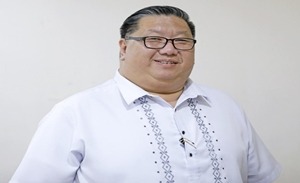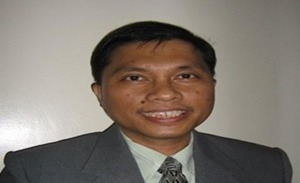ESPRESSO MORNINGS
By Joe Zaldarriaga

Under his guidance, Meralco achieved unprecedented milestones, clinching a historic 3-peat Company of the Year title at the IABC Philippine Quill Awards, scoring the only PR Team of the Year trophy bestowed at the Anvil Awards, and securing numerous honors at international and local communication awards.
Manong Joe’s leadership also extends as a respected member of the Board of Trustees for the Public Relations Society of the Philippines (PRSP), concurrent with his role as Chairman of the International Association of Business Communicators Philippines (IABC Philippines) where he also served as its President.
Manong Joe is a distinguished awardee of the medallion of honor and scroll of commendation from the University of Manila, owing to his years in public service as a communications professional. He shares his insights through columns in renowned publications, including The Philippine Star’s The Z Factor, and Philippine News Agency’s ESPRESSO MORNINGS.
The recent pronouncements of United States President Donald Trump on sweeping tariffs have heightened global anxiety —sending shockwaves across markets and instigating fears of a global recession in an already fragile post-pandemic economy.
While global headlines mostly focused on US-China trade tensions, the ripple effects of Trump’s protectionist approach are far and wide, haunting markets including Southeast Asia and as such, the Philippines.
The “America First” policy of Trump has disrupted the global trading system, shaking highly diverse economies that are tightly integrated in supply chains particularly those from ASEAN —from manufacturing powerhouses like Vietnam to financial hubs such as Singapore.
As an ally of the US and an active trading partner of China, the Philippines again finds itself in the awkward and uncomfortable position of being caught in the middle of great power rivalries. This, as tensions rise in the Indo-Pacific with alarming headlines about a possible invasion of Taiwan by China under the watchful gaze of the US.
Adding fuel to the fire are the reportedly recent remarks in media allegedly urging our troops to “prepare for war” and revealing plans to ramp up the acquisition of fighter jets, missiles, and warships—stoking fears of a looming catastrophe.
China was quick to react as expected —expressing displeasure over the comment and warning the Philippines that “those who play with fire will burn themselves.”
This war rhetoric (both economic and political) which has dominated headlines here and abroad in is not only fueling anxieties but is also completely uncalled for.
In this age of global economic and political uncertainly, what Filipinos need most is not more fear, but more foresight.
The possible flashpoint over Taiwan and the West Philippine Sea prompts the Philippines to come to terms with the reality that economic entanglement with global powers China and the US comes with geopolitical strings.
Tariffs may appear as economic tools, but these can easily be weaponized politically —increasing the risks for countries like the Philippines to be pulled into conflicts not of their making.
We cannot afford to join the chorus of war drums being played across the Pacific. Our role should not be that of an echo chamber for powerful allies, but that of a calm, reasoned voice advocating for peace in the region while pursuing economic diversification.
With the heightened trade friction caused by Trump’s tariffs, ASEAN countries including the Philippines should turn to diversification—strengthening market relations with regional players like Japan and South Korea to reduce reliance on external markets and improve regional economic resilience. ASEAN nations must strike a balance between protecting their own economies while maintaining international trade relationships with global superpowers US and China.
In terms of dealing with China, the pragmatic thing for the Philippines and neighboring Southeast Asian countries to do is to promote the rhetoric of peace through diplomacy. ASEAN has always stood strongest when it championed regional stability and solidarity.
The most constructive form of foreign policy we can pursue now is twofold: state-level diplomacy and people-to-people partnerships.
President Ferdinand R. Marcos Jr. should revisit and fast-track the implementation of agreements forged with China and the US, not to appease, but to establish economic interdependence and mutual respect.
At the same time, civil society, business chambers, and cultural organizations must strengthen collaborative efforts that enhance trade, education, and poverty alleviation with the US and China. Dialogue and diplomacy should be the default way forward, not military posturing.
By embracing diplomacy, we champion coexistence and avoid widespread economic and political regression.
It’s time to say goodbye to the rhetoric of war. Let us raise our voices, instead and pursue the rhetoric of peace.





